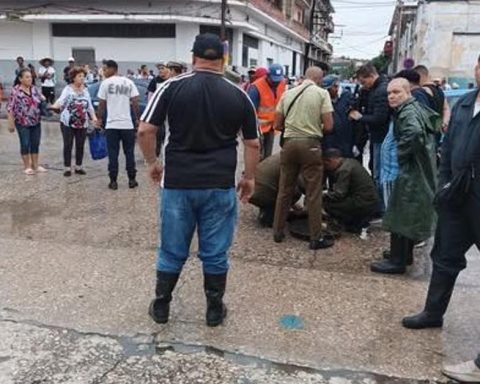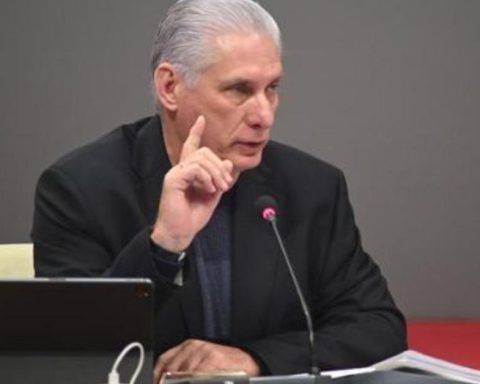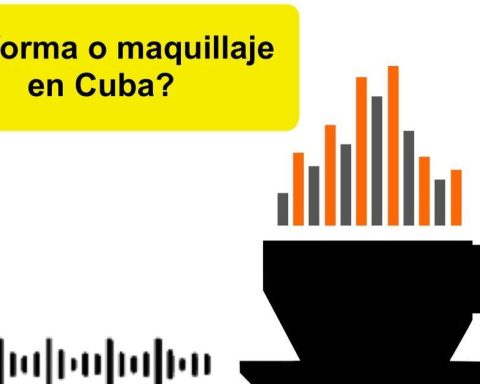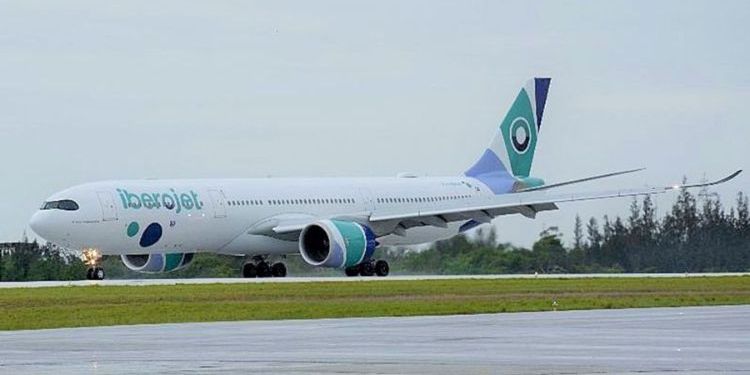
Havana/“In some places they called some [delincuentes] “They went to the meeting and did not return home, is that true?” It was the question of the regime’s spokesman Humberto López to Colonel Daniset González, national head of Police Information, regarding what they both called Meetings with Crime. “Yes, that’s right. And it is legal,” he responded.
González did not say how many people were arrested, but he did say the crime they were charged with: disobedience.
People of interest to the Police throughout the country were “attracted” to these “meetings,” called throughout the country by order of the Communist Party during the recent National Prevention and Confrontation Exercise. López questioned several senior officials about these raids on his television program. We make Cuba.
“You call that Meetings with Crime,” López said. González was silent about the term and the spokesperson took up the baton: “That’s how it is, they are people who have a certain behavior and everyone knows who they are in the neighborhood. That’s why they called them.”
López asked González again if the Police had legal justification for detaining those “prone to committing crimes.”
López asked González again if the Police had legal justification for detaining those “prone to committing crimes.” The colonel responded affirmatively again and explained that the Police have set themselves the goal of exercising more “influence and control” over people who “maintain maladjusted behavior in the community.”
The Ministry of the Interior, he said, “has information that they are involved in certain indiscipline and illegalities that may become more complex situations in the future. In the case of the Meetings with Crime, they attracted people with police monitoring, but also those who today are enjoying the benefit of early parole.”
“As for those who were detained, I can say that there was sufficient evidence that they had violated the requirements for which they had benefited. And in the case of those who had police monitoring, there was a lot of previous work, in stages, between the Police, the family, community factors and prevention groups, and despite everything done, these people had not managed to transform their behavior.” , he finished.
González also alluded to a “discovery” that the Police made during the exercise: the “displacement of crime” to other municipalities and even provinces when an increase in patrolling and police presence is announced. López jokingly commented on the topic. “I don’t know if we should warn the criminals here and tell them: ‘We are going to be here or there,’ so that they run to another place. It is transparency and ultimately it is prevention.”
There were other details – without providing a single figure – about crime in the country. González assured that the Police dismantled numerous “criminal chains” related to drugs. Most of the narcotics seized corresponded to chemicalof which “significant volumes” were found, in addition to money and non-specific objects, used for “illicit activities.”
In Cuba, González said, there are many cars with state license plates that circulate without the visible identification of their companies. Fines were imposed and the information was sent to the corresponding ministries so that those responsible could be punished.
An official of the Central Committee, Joaquín Bernal, and the Minister of Finance and Prices, Vladimir Regueiro Ale, were also invited to the program.
An official of the Central Committee, Joaquín Bernal, and the Minister of Finance and Prices, Vladimir Regueiro Ale, were also invited to the program. The latter admitted that there is “constant dissatisfaction” among Cuban customers and that, during the year, a legion of inspectors were in charge of reviewing the price situation and the loss of purchasing power of Cubans.
There were “three times as many inspectors on the street,” Regueiro said, because his ministry has begun to train more and more staff. “We may have many inspectors, but where do they go? There are complaints in all the towns,” López asked. “This is not a random exercise,” the minister responded, visibly uncomfortable.
Havana was the place with the most “incidents”, but also where there were the most inspectors. To a lesser extent, Santiago de Cuba, Cienfuegos and Mayabeque stood out in imposing “more and larger fines” and confiscations. In six days of work, Regueiro celebrated, 92 million pesos were raised.
“Prevent first,” was López’s last phrase in his program, “but if it is not understood, our hand cannot shake. The hand of those who belong to them cannot shake. With rigor. Let that punishment come and let the sanction come.”













